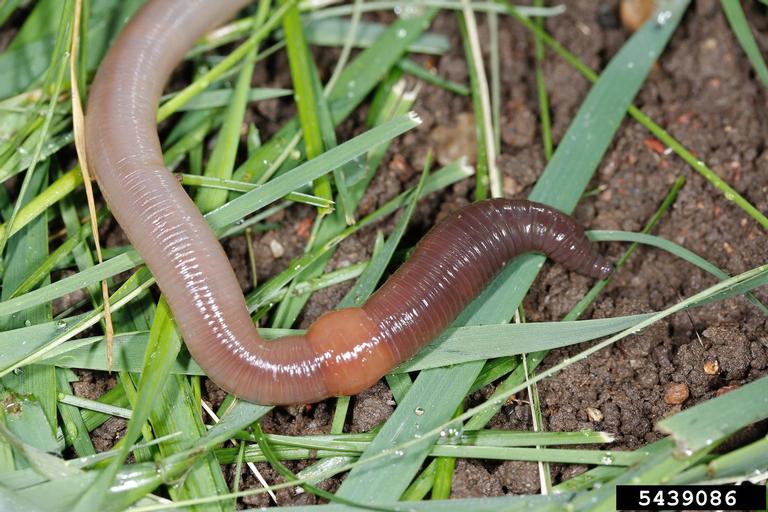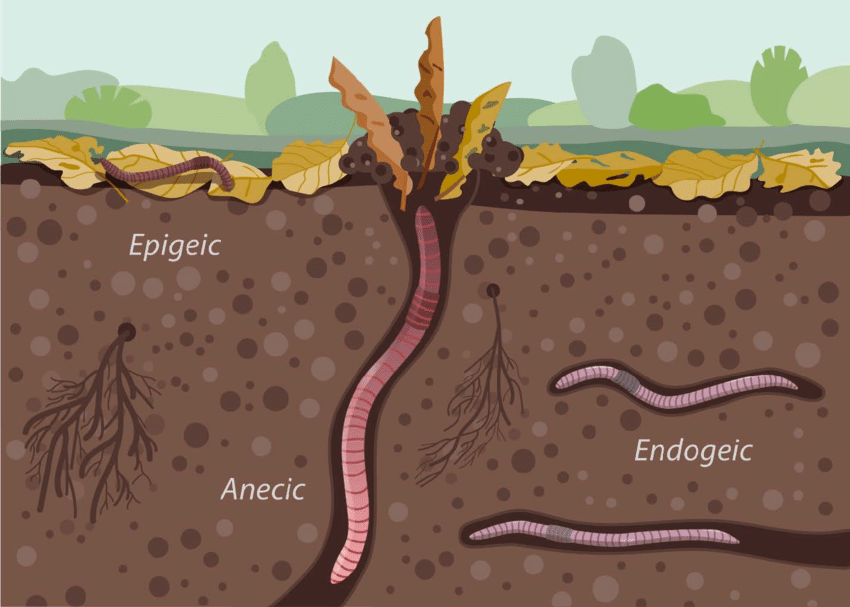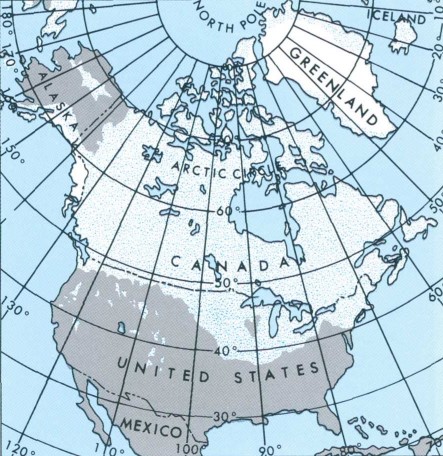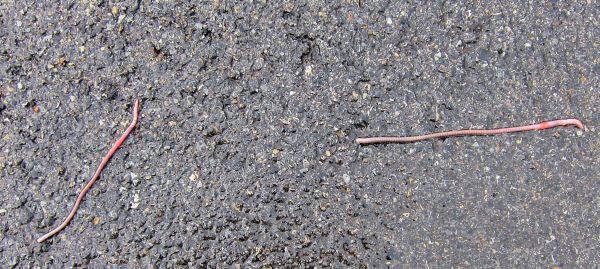Earthworms have held a secure place in the hearts of many gardeners for quite some time. Charles Darwin himself was endlessly fascinated by these organisms (publishing an entire book about them in 1881) writing: “it may be doubted whether there are any other animals which have played so important a part in the history of the world…”.

Recognized for their benefits to soils, including improvements in water infiltration, aeration, porosity, tilth, organic matter, beneficial microbes, and the list goes on, it is not difficult to see why. These positive impacts can be seen in home gardens and agricultural operations alike, with studies showing significant improvements in crop production correlated with the presence of earthworms. As such, terrestrial earthworms are often referred to as ‘ecosystem engineers’ due to their immense impact, and have been intentionally (and accidentally) introduced to previously worm-free areas. Many of these impacts and benefits are highlighted by Sjoerd Duiker and Richard Stehouwer’s earthworm article for Penn State Extension.
That being said, we have also started to hear a lot more about “invasive earthworms”, “jumping worms”, “stink worms”, – paired with statewide and regional campaigns encouraging people to reduce human-caused introductions and spread of non-native earthworm species in areas where they could cause significant harm to natural ecosystems and major hassles for managed ecosystems as well.
With all kinds of variable information out there, I thought it would be fitting to elaborate on the topic of earthworms, with the hopes of educating myself (and fellow readers) on some of the history, science, and misconceptions on this pretty popular garden-related topic. Having personally worked in North American horticultural systems, much of this information will be tied to the trends that we observe here, however I will also share some resources at the end that will elaborate on earthworm trends outside of North America (for those interested in learning more about the topic).
Earthworm Biology
Before we get into the nitty gritty, let’s learn a bit more about earthworm biology. There are thousands (an estimated 3000-7000) of earthworm species around the world, and these can be found on every continent except Antarctica (because earthworms cannot survive in permafrost or underneath glaciers). Most earthworm species vary in size from 10 millimeters (0.39 inches) to over a foot (12-14 inches) in length. There are even giant earthworms: such as the giant Oregon earthworm that is 4.3 feet (1.3 meters in length), the Australian giant Gippsland earthworms which can grow to 9.8 feet (~3 meters) in length, and the giant African earthworm with the largest earthworm specimen ever recorded, measuring up to a staggering 21 feet (6.7 meters) in length.
These thousands of earthworm species can be divided into 3-main groups:
- Compost and litter dwellers (Epigeic)
- This group feeds on leaf/crop litter, and as such, can be found at the interface of litter and soil (around the soil surface). These earthworms are typically smaller in size than the other groups, do not consume large amounts of soil, are not as good at burrowing, and are also used in composting systems.
Example: red wigglers (Eisenia fetida)
- This group feeds on leaf/crop litter, and as such, can be found at the interface of litter and soil (around the soil surface). These earthworms are typically smaller in size than the other groups, do not consume large amounts of soil, are not as good at burrowing, and are also used in composting systems.
- Topsoil dwellers (Endogeic)
- Species in this group live within the top few inches of soil, subsisting on partially decomposed organic matter present within the soil. These earthworms create horizontal burrows, filling them with their excrement (after ingesting large quantities of soil). These species can be identified by their lack of skin pigmentation, appearing grey, blue, yellow, white or pink.
Example: angle worms (Aporrectodea caliginosa)
- Species in this group live within the top few inches of soil, subsisting on partially decomposed organic matter present within the soil. These earthworms create horizontal burrows, filling them with their excrement (after ingesting large quantities of soil). These species can be identified by their lack of skin pigmentation, appearing grey, blue, yellow, white or pink.
- Subsoil dwellers (Anecic)
- This group can be found deep within the soil (up to 6 feet below the surface), living in permanent vertical burrows. They require plant residue on the soil surface in order to survive. They also ingest large quantities of soil, and deposit their excrement at the soil surface.
Example: common nightcrawler (Lumbricus terrestris)
- This group can be found deep within the soil (up to 6 feet below the surface), living in permanent vertical burrows. They require plant residue on the soil surface in order to survive. They also ingest large quantities of soil, and deposit their excrement at the soil surface.

Earthworms (Clitellata) are a class in the phylum of annelids (segmented worms). They can be characterized by their clitellum (a reproductive band that secretes a fluid to form a cocoon for their eggs). They have both male and female reproductive organs, though they require another individual for mating (where their eggs are fertilized by another’s sperm and vice versa). Depending on the species, they can produce between 3 to 1000 cocoons (containing anywhere between 1 to 10 eggs) per year. A majority of this occurs in the spring or early summer.
Like many organisms, environmental conditions and human management practices can have significant impacts on their populations and activity. Moisture, temperature, soil texture, pH, and availability of food are some of these environmental factors that can have a considerable impact. Although excess moisture is not ideal, earthworms can survive in high moisture conditions if oxygen availability in the water is sufficient. In dry conditions, they can enter a temporary hibernation stage (diapause), descend deeper into the soil, or even die (which can reduce earthworm populations in many areas during the summer months and in prolonged periods of drought).
Management practices such as reduction in tilling frequency, soil amendments (such as compost and manure), crop rotation, surface plant/crop residue, and use of certain fertilizers and lime are often linked to favorable impacts on earthworm populations. Whereas increased tillage, soil acidification, removal of surface crop/plant residue, and the use of toxic products such as certain pesticides are associated with a negative impact on earthworm populations and activity. (You can learn more about these in the Penn State Extension earthworm article).
History of Earthworms in North America
There are approximately 300 species of earthworms native to North America, and these are primarily found in previously unglaciated areas (such as the Pacific Northwest, South-Eastern U.S., Mexico, Central America, and the Caribbean). In the rest of the continent, most of our earthworm species were wiped out during the last ice age either through direct glacial cover or frozen ground (even if it was quite a distance away from the glaciers).

Since European colonization of North America several hundred years ago, earthworms of European origin were introduced and have now become widespread in many areas, including those that had been previously worm-free since the end of the last ice age (such as the mid-western and northeastern U.S.). According to a 2024 study by Mathieu et al., at least 70 non-native earthworm species have colonized North America, which measures up to be 23% of the continents known earthworm species. Many of the most ‘familiar’ and commonly seen earthworm species that you may have in your landscapes may be introduced earthworms like the infamous nightcrawlers (Lumbricus terrestris), often referred to as common earthworms, which are actually European natives. These, along with around several other very competitive earthworm species have become globally widespread and some of them are even considered invasive species in many regions.
You might think, with the significant ecosystem services provided by these ecosystem engineers, is the introduction of non-native earthworm species to previously worm-free areas really that bad? The answer to this, is YES. Although the impacts of many of these non-native earthworms have been considered positive in agricultural (and home garden) situations, the impacts on natural ecosystems can result in significant ecological impacts. Additionally, not very much research has been conducted on long-term impacts of these organisms in different ecosystems. Though these effects will vary by species and ecological group, some earthworms have been associated with significant negative impacts to ecosystem processes. This has included the reduction of understory litter, impacted plant and fungal communities that are able to survive in these landscapes, has been associated with an increase in soil erosion, and had immeasurable impacts on many food webs. You can learn about the physical, chemical, and ecosystem impacts in greater detail from this publication by USDA’s Northern Forests Climate Hub.
Furthermore, some of these larger and more competitive non-native earthworm species have the potential to displace indigenous earthworm species which can often be more sensitive to soil disturbance than their introduced counterparts. The establishment of some of these non-native species around the globe can result in untold impacts on native earthworm species worldwide.
This spread followed by the immense ecosystem impacts that have and continue to occur have been dubbed by some as “global worming”.
Common Questions
Can (/should) you introduce earthworms to your garden?
Whether you have compacted soils, low organic matter, or any other reasons, you may be tempted to consider trying to boost your local earthworm populations (in order to reap all the benefits associated with them).
First of all, you should never move around invasive species, nor introduce organisms that you do not know very much about to a new landscape. Not only is it illegal in many locations to intentionally introduce certain exotic species, it can also be irresponsible. I think we all know and understand why this is a bad idea, so I won’t go into too much detail.
Even if you did become an expert in earthworm identification, and could differentiate between native vs. non-native species (and know about the established earthworms in your landscape), it still may not be a great idea to introduce earthworms to a new location (especially if you reside in one of these historically worm-free areas). We know that introductions and releases of organisms to new sites can have a variety of negative consequences (even if they may be indigenous to the area or already well-established) [many of these were mentioned in my Blog Post on Releasing Lady Beetles and Mantids for pest control in home gardens].
Even if you did manage to introduce them, they may not survive long-term nor stick around. That being said, good gardening practices may naturally attract earthworms to your gardens (without the need and potential negative impacts of introducing them yourself). So continue working on being an ecologically-responsible gardener, and enjoy the many benefits of this.
What about earthworms in my compost?
Because of earthworms’ ability to breakdown plant residues and convert them into valuable soil amendments rich in organic matter, composting using earthworms (vermicomposting) has become fairly widespread. These worm composting systems rely on earthworms such as the European red wigglers (Eisenia fetida), which are a common commercially available species. Although composting with earthworms is a well-established tool for gardeners, it is important to be a responsible vermicomposter to limit any unintended negative effects.

Photo: Abi Saeed
In areas where you do not know very much about your local earthworms and the ones that you are using in your compost (especially if you are located in previously worm-free regions), keep your worm bins contained, and do not introduce worms and cocoons in your gardens (especially if you live in proximity to natural areas). Strategies to accomplish this include creating a screen to separate your finished compost from your worms, inspecting it thoroughly for worms and cocoons and/or freezing your compost before you use it in your gardens.
Should we be working on managing these non-native earthworms?
As we know from countless examples and extensive previous experience, it is nearly impossible to eradicate established non-native (especially invasive) species. Due to the fact that many of these non-native earthworm species are widespread as a result of human transport, there is little that we can do to remove them from landscapes in which they currently thrive (especially without doing significant harm to other organisms that share those ecosystems). What we can do, however, is to limit the introduction and spread of non-native earthworm species through responsible gardening/farming (not moving around compost with earthworms or their cocoons to new sites), and recreation practices (avoiding the transport of leaves, mulch, and other plant debris into natural areas, and disposing of fishing bait appropriately).
More information on stopping the spread of invasive earthworms can be found through the Great Lakes Worm Watch campaign and land management considerations for earthworm management in areas that are worm-free as well as those with earthworm species are highlighted by the Northern Forests Climate Hub publication on non-native earthworms.
Resources:
Benefits and
Biology of Earthworms (Penn State Extension)
https://extension.psu.edu/earthworms
Earthworms
(Colorado Master Gardener)
https://cmg.extension.colostate.edu/Gardennotes/218.pdf
Great Lakes
Worm Watch Campaign (University of Minnesota Duluth)
https://wormwatch.d.umn.edu/join-team/stop-spread
Non-Native
Invasive Earthworms in the Midwest and Eastern United States (Northern Forests
Climate Hub)
https://www.climatehubs.usda.gov/sites/default/files/Earthworms_CPrimer_05302024.pdf
Multiple invasion
routes have led to the pervasive introduction of earthworms in North America (Mathieu
et al., 2024)
https://www.nature.com/articles/s41559-023-02310-7
Earthworm Society
of Britain
https://www.earthwormsoc.org.uk/
Global Distribution
of Earthworm Diversity (Phillips et al., 2019)
https://www.science.org/doi/10.1126/science.aax4851


